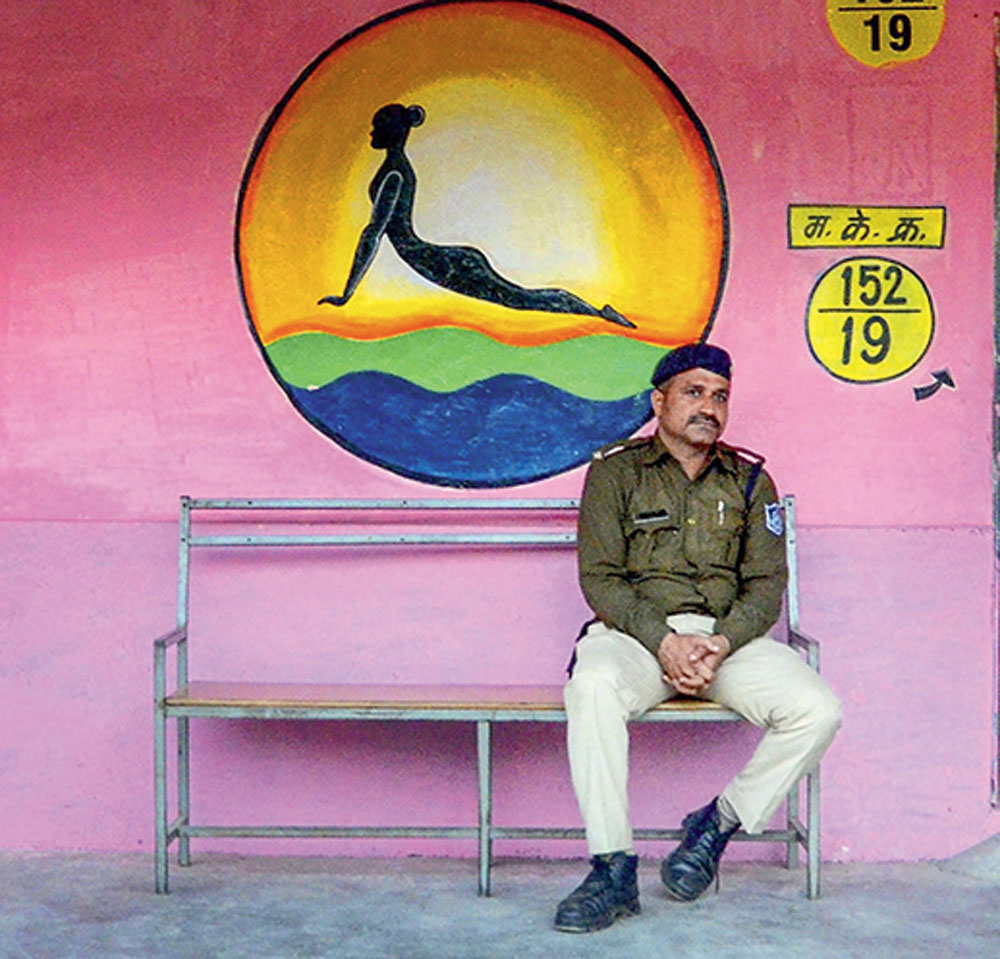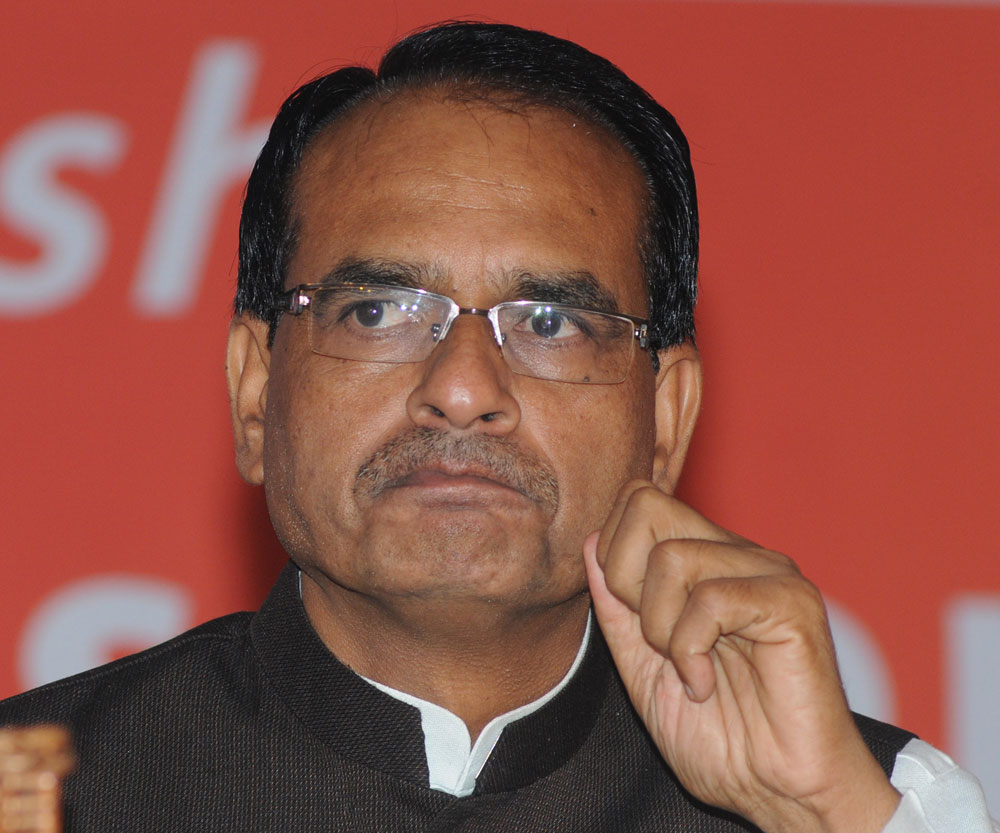The RSS and the BJP have summoned all their might to try to retain power in Madhya Pradesh as they battle 15-year-strong anti-incumbency and an unusually resurgent Congress that has succeeded in making “change” — badlav — the catchphrase of this election.
Madhya Pradesh will vote on Wednesday amid the general perception of a tough contest. The outcome of this election is expected to have a critical impact on next year’s parliamentary election — a Congress victory here could transform Rahul Gandhi into a formidable challenger to Narendra Modi while a BJP win would restore its fading political swagger.
The BJP has faced people’s discontent during electioneering and been unable to control the discourse despite enormous deployment of resources, human and financial. The Congress has remained in the frame in every constituency, as voters voice anger against farm distress, an acute job crisis and the reckless decision of demonetisation.
Prime Minister Modi has held merely 10 public rallies, allowing chief minister Shivraj Singh Chouhan — who addressed 154 meetings — to take the driver’s seat. While the ground realities dictated Chouhan’s supremacy in a state he has nursed for so long, BJP insiders privately admitted that Modi’s over-exposure was consciously avoided to shield him in the event of a defeat.
Congress president Rahul addressed 21 public rallies and focused on dismantling Modi’s larger-than-life image using instruments such as the Rafale deal, and his party worked out a strategy to exploit its available resources to the optimum — Kamal Nath was asked to focus on election management, Jyotiraditya Scindia was projected as the party’s face in the campaign and former chief minister Digvijaya Singh handled political management, managing rebellion and dealing with influential behind-the-scenes arbiters of vote.
The Congress, unusually, also has an action plan to counter the BJP’s famed booth management on polling day. Trained party workers have been deployed in all 65,300 booths of the state, with special focus on around 40 Assembly constituencies where the contest is close.
This micro-management started in Gujarat, where around 70 per cent constituencies were monitored daily by a centralised system and the experiment is being replicated in Madhya Pradesh on a larger scale.
A day before polling, the BJP issued full-page advertisements in local newspapers explaining how its 15-year track record was better than 50 years of the Congress. It asked the voters: “Will you press the button to make politics captive to one family or to make democracy the expression of a common man?” The BJP’s main slogan is: “Vikas ki nayi paari hai/ab samridhi ki baari hai (This is a new innings of development, now towards prosperity).” The BJP had two more advertisements in all the newspapers.
The Congress, in its small quarter-page appeal, asked voters to usher in change for a better future for children, youth, women and farmers. Kamal Nath in a video message posted on Twitter asked voters to hold the BJP accountable for their “lies and false promises.”
While the contest in most constituencies is between the Congress and the BJP, rebels from both parties have managed to alter the electoral dynamics in at least two dozen constituencies. The BJP’s Jayant Malaiya, who is the state’s finance minister, is facing BJP’s former agriculture minister Ramkrishna Kusmariya in Damoh. In Balaghat’s Waraseoni, the Congress has fielded the chief minister’s brother-in-law Sanjay Masani but local party leader Pradeep Jaiswal jumped into the fray and is campaigning with Indira Gandhi’s poster to defeat Rahul Gandhi’s candidate.
The presence of smaller parties like the BSP and the Samajwadi Party is hurting Congress prospects in around a dozen of the 230 constituencies while the emergence of SAPAKS, an anti-reservation outfit, is damaging the BJP in many seats.












